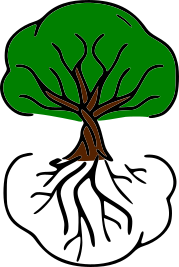At the Institute, the graduate students of the 15th cohort (C15) have been hard at work this past year teaching Mountain School, assisting in adult programs and visiting non-profits, all while finishing assignments and trying to find some sleep! Every season though, the graduate students leave all that behind to learn from experts in the field and be fully immersed into the wilderness of the North Cascades. Last fall we worked with beavers and hawks. In the winter we dived intosnow ecology and wolverines. Just last week, we ventured out on our last natural history retreat where we tracked our natural neighbors, captured native bees and kept up with all of the birds!
Graduate Winter Natural History Retreat: Class in the Snow!
As the snow is melting and Spring is is coming in full force, winter’s grasp is quickly fleeting from our minds. It’s hard to imagine that just a month ago the 15th Graduate Cohort of the North Cascades Institute was on their Winter Natural History retreat in the Methow Valley, then a winter wilderness! The retreat was thesecond retreat we had taken this year, in which we delve deep into the natural landscape to get first hand experience with our local wilderness. In this particular trip we learned about astronomy, wolverines, avalanche science and even tracking. Our whole trip had us centered at the Skalitude Retreat Center located in the Methow Valley.
Beavers and Hawks: Graduate Fall Retreat Seminar 2015
Woke up at 0555 to a pack of coyotes (Canis latrans) howling and barking in a playful manner with one another for about ten minutes. During this time a barred owl (Stix varia) was making some small hooting. Still very dark, the weather was mostly fog with a 70 yard visibility at 40*F.
This is how my journal entry for the 2015 Fall Natural History retreat started on October 8th, 2015. As part of the Graduate Program at North Cascades Institute, the fifteen of us students in the newest cohort along with our instructors Joshua Porter and Lindsey MacDonald went over to the Methow Valley to get first hand experience with our natural home. As future environmental educators, it is vital for us to understand our local ecosystem through experience so that we can lead the next generation in outdoor experiences. With this trip in particular, the first day focused on beavers, while the second on hawks.




